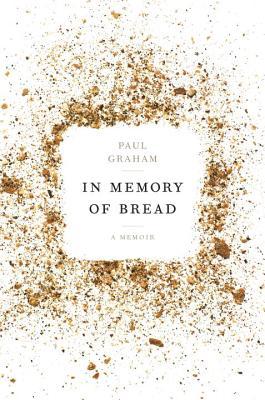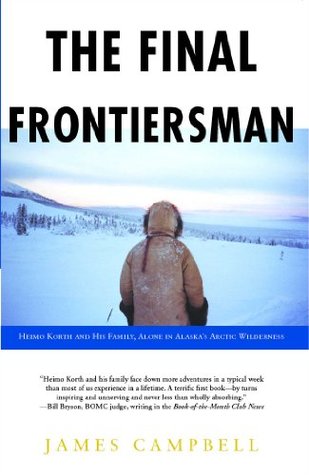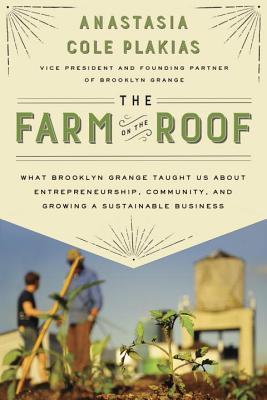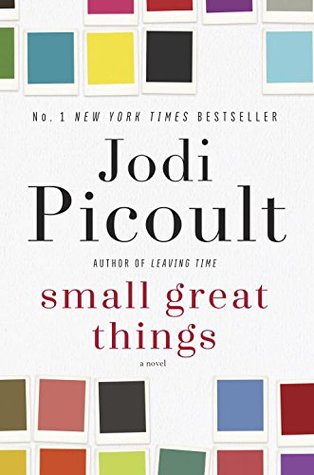Inside the O'Briens by Lisa Genova (Books & Banter book club)
When Joe O'Brien starts having mood swings and weird physical symptoms he chalks it up to stress. He's a veteran Boston police officer, so every day is often stressful. But, soon other people are noticing and his wife finally makes him go to the doctor. He never expects a diagnosis of Huntington's Disease - a fatal neurological disorder that kills within 10-15 years of exhibiting symptoms. He also finds out that each of his 4 kids have a 50% chance of getting Huntington's too. The book is told from Joe's perspective and also from Katie's perspective, Joe's youngest daughter. Each of his kids reacts differently to the diagnosis and whether or not they will take the genetic test that will determine their fate with Huntington's. This is a unique look at a very rare and deadly disease. Joe's character is immediately likable and parts of the story are laugh-out-loud funny and others will make you tear up and Joe struggles with his diagnosis and how his family is trying to cope. While not a happy ending kind of book it's not a total downer and it does end on a more hopeful note. This is another great novel from Lisa Genova.
Originally read from November 17-19, 2015
I just finished re-reading this book for one of my book clubs. While I remembered liking it a lot, this time it hit me a little bit harder. Somehow the first time I read it I didn't realize Joe is about my husband's age and looking at it from that viewpoint made me see the book a little differently. Just contemplating having such a terrible disease at such a young age is hard to do. I think the first time I read it I was thinking more about the kids perspective and whether to take the genetic test or not, but this time I felt more of a connection with Joe and Rosie. This is a great book that will make you both laugh and cry within the span of a few pages and it also highlights a serious disease that is rarely talked about in our society today. Definitely enjoyed re-reading it and I think it will make for a great book club discussion.
The Farm on the Roof by Anastasia Cole Plakias
This is an interesting book about a group of 20-somethings in New York City who decide to go in together and create a rooftop farm. Only one member of the group had any experience with rooftop urban farming or any kind of farming really. But after much planning and hard work they "monstered it out" and Brooklyn Grange's first rooftop farm was born. This is more of a business book than a farming book, but I was especially impressed with Ben's spreadsheets and calculations to determine how much produce they needed to grow to make financial ends meet, but also how much value each crop produced so they could grow the most financially productive crops. The back story of all the main people involved is interesting because you can see how their prior career backgrounds translated into this venture. The biggest takeaway from this book is just how hard running a small business can be and how you have to constantly think outside the box to make your business profitable. This is a very unique book about a unique business.

Ordinary Grace by William Kent Krueger (Evening Edition book club)
Apparently this book won a bunch of awards, but I honestly didn't really see why. This is one of those books that I only read because of book club and I don't think I would have missed much if I hadn't. But, of course everyone in my book club LOVED it.
The book is narrated by thirteen-year-old Frank Drum and takes place in Minnesota in 1961. The book takes place over the course of a summer where death seems to be all around. Frank himself finds 2 dead bodies - which seems a little ridiculous to me. There is also the unexplained death of a child and a suicide attempt that summer. Frank is trying to solve all these mysteries during the summer and while he does solve one case, it just seems a little far fetched that he would be the only one to notice what he did (trying to not give anything away here). There are a few parts that I did like, but overall I just wasn't impressed with this book and thought it was too far-fetched and too neatly wrapped up in the end.

In Memory of Bread by Paul Graham
Paul Graham and his wife had gotten into artisan bread baking, then he and a friend started brewing their own beer. Paul and Bec already tried to eat locally and most of their food was made from scratch at home, so the bread and beer were bonuses. Then around Christmas time Paul got sick - REALLY sick and couldn't seem to get better, even ending up in the hospital a few times, before he was diagnosed with celiac disease. This diagnosis completely changed how he and his wife ate - she went completely gluten free in solidarity. At first he is angry at the diagnosis and how much most GF substitutes suck compared to the real thing, but as time goes on and he is off gluten for longer and longer the cravings die down and he decides to focus on cooking what's naturally GF instead of trying to find substitutions that usually lead to disappointment. After awhile they do manage to find some really good GF cookbooks for bread and pizza dough - most notably one by America's Test Kitchen. He also finds a few small bakeries that are completely GF including one in his small upstate NY town by the end of the book.
While I am not GF by necessity or choice, I LOVED this book. I do have a food allergy to fish and shrimp and while I don't crave them, I do really miss eating some of the foods I grew up eating and thankfully my husband doesn't eat seafood in solidarity with me too. While seafood is definitely not as ingrained in our society as wheat, it's still hard sometimes when you have any kind of food allergy. I would think someone with gluten intolerance or celiac would really love this book and could relate better, I think anyone who's interested in food would enjoy this one. I knew I was going to like it when this line was in the introduction: "But the core of who we are, where we came from, and what we believe is often (if not always) on the plate in some way, whether dinner came out of the freezer section or the garden." (p. 1-2)
Some other quotes I really liked:
"I was filling a basket with yogurt, coconut, aloe vera juice, slippery elm powder, and some other natural remedies that the [health food store] owner had recommended for ravaged GI tracts...Did these natural remedies work? It's tough to say for sure, but only the yogurt, which I couldn't tolerate yet, seemed to hurt me. I had entered into a mental space I never thought I'd go, one where scientifically unproven treatments seemed completely legitimate, and no potential cure sounded too strange or unpalatable: a breakfast of rice grits with powered marshmallow root and slippery elm powder, washed down with a glass of watery cactus pulp (that'd be the aloe juice), for example. It was the meanest, most desperate eating I've ever done." (p. 27)
"In 2014, the herbicide [Roundup] turned up as a possible cause not only of celiac disease itself, but also of gluten sensitivity. It is an effective desiccant used for 'drying down' crops to speed them into processing. A review article hypothesized that malabsorption in carnivorous fish had been caused by glyphosate [aka Roundup] because its antimicrobial properties also targeted bacteria resident in the gut; the same might be happening in humans who come in contact with glyphosate." (p. 81)
"Among the greatest gifts Bec gave me was her own decision to eliminate gluten. She didn't even ask me, Do you want me to do this? I would have said no, and she knew that. So she just did it - although some people assumed that I must have asked, even demanded it of her, or else she would have stuck to her old diet. Our friends quickly came to understand and admire her sacrifice, but whenever we met someone new, they were surprised. Some referred to her decision to give up wheat as martyrdom, which pissed me off - I knew that she had done it out of love, and that she wasn't enjoying the GF life any more than I was. It seemed we were the exception and not the rule in how we were going about managing this." (p. 153)

This Present Darkness by Frank E. Peretti (Meck book club)
Something weird is going on in the small town of Ashton. Marshall Hogan, the new owner of the Clarion Times, feels it and so does Hank Busche, pastor of Ashton Community Church. Hogan realizes there is a political cover up and starts digging into why so many pillars of Ashton's community are suddenly gone. Busche realizes there is a spiritual attack going on in Ashton and he is determined to bring together the community of believers and counter this attack. When the two men finally meet they put together the horrific puzzle of what's REALLY going on in Ashton. Meanwhile, behind the scenes both angels and demons are working overtime on the residents of Ashton. In the end there is an epic battle between good and evil that will determine the fate of Ashton and it's residents.
This is Peretti's first book and was originally published in 1986. While there are a few signs that it's an older book (no mention of cell phones or the internet and barely any mention of computers), for the most part it could easily have been written more recently. While the details of the storyline are pretty out there and are unlikely to ever happen in real life, I do think the author does a good job of showing how evil can work behind the scenes in people's lives. I remember reading this probably a few years after it came out and at the time it was revolutionary for the depiction of the fight between angels and demons over human souls. While I did get pulled into the story especially as the action heated up, the beginning was slow and there is a LOT going on so it can be hard to keep up with all the characters and stuff going on behind the scenes. Overall, it was good especially for being written in 1986, but I didn't love it.

The Final Frontiersman by James Campbell
After reading Campbell's newest book Braving It about his adventures in Alaska with his daughter, I found out about this book - his first. I was familiar with the Korth family from the TV show The Last Alaskans, but this book really fleshed out their story a lot more. Campbell does a great job of giving Heimo's background and what drew him to Alaska, while also giving background on the homesteading movement in Alaska that took place during the 1960's and 70's. Campbell also gives background on the Alaska National Interest Lands Conservation Act (ANILCA) of 1980 and how that affected homesteaders and native people in Alaska. Campbell is a great writer in my opinion and he does a wonderful job interspersing Heimo's story with information about Alaska. This is an eye-opening book about a family who is living a vanishing way of life in the last true wilderness.
Small Great Things by Jodi Picoult
Ruth Jefferson is a labor and delivery nurse with over twenty years experience. She loves her job and works hard. When she takes over the care of a newborn one shift the parents ask her to leave and ask to speak with her supervisor. They are white supremacists and don't want anyone black taking care of their child. A few days later there is an emergency c-section and Ruth is left alone with baby Davis and during that few minutes he stops breathing. Ruth is devastated, but even more so when two weeks later she is fired from her job and arrested for murder. Ruth knows that the same circumstances would have played out differently if she had been white, but will the legal system see that? The story is told from Ruth's perspective, as well as from Kennedy, her legal aid lawyer, and Turk, the white supremacist and the baby's father. Jodi Picoult is an unbelievably talented author and she always does a great job with the voices of her characters, but I think this book might be her best yet. Who would have thought she could do such an amazing job with the voice of a black woman and a white supremacist?! This is an incredibly timely book that shines a spotlight on the hot-button issue of race in our country today and how that often plays out in our legal system. Despite this book being over 450 pages I blew through it in two days because I just could not put it down.
A quote I really liked:
"If the past few months have taught me anything, it's that friendship is a smoke screen. The people you think are solid turn out to be mirrors and light; and then you look down and realize there are others you took for granted, those who are your foundation." (p. 340)

Locally Laid by Lucie R. Amundsen
I thought this would be a really good farm start-up kind of book, but it wasn't that great. Lucie's husband decided on kind of a whim that he wanted to be a mid-level egg farmer and when shortly afterward he got laid off they decided to go for it. But it meant renting land since they owned two houses and couldn't buy anything. All around it seemed like they just made mistake after mistake and bad decision after bad decision. They got a lot of local media attention when they entered a contest to win a commercial spot in the Super Bowl, but they still weren't really making enough money to support their family. I know sometimes you have to jump in to something and take a chance, but this seemed like a really bad idea. I know farming is hard work and most farmers don't make a ton of money, but you can support yourself if it's done right (see anything by Joel Salatin). While Amundsen does intersperse information about the farming industry with their personal story, I just didn't find it a compelling book. I felt like I was watching this family on the brink of disaster the whole time I was reading. There were a few funny parts and the writing is pretty good, but not enough for me to recommend this one.








